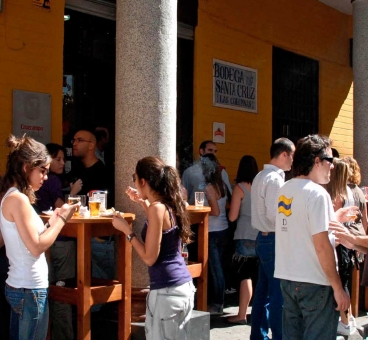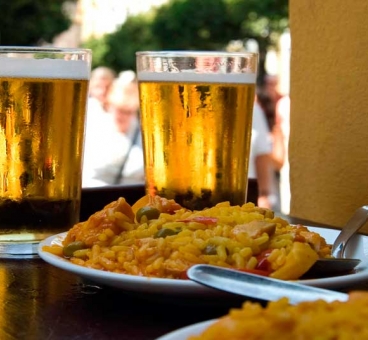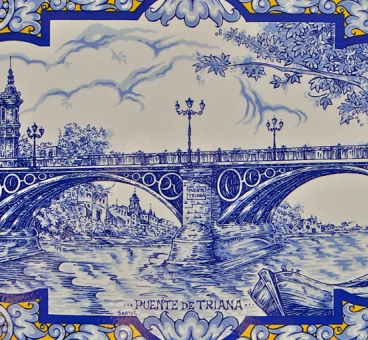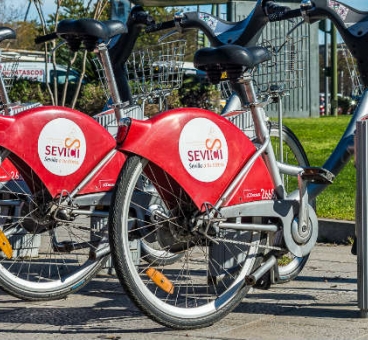If you decide to fly to Seville, you’ll land at the Seville airport, also called the San Pablo airport. It’s a first-class airport in a city with a long aeronautical tradition. Not in vain, as next to the Seville airport is one of the most important aeronautical complexes in Europe.
The Seville Airport was expanded in 1992, under a design completed by the prestigious architect Rafael Moneo. It’s hall, dominated by arches supported by vaults is a tribute to the culture of Seville and Andalusia.
The airport has excellent parking areas, with access to the arrival and departure halls, offering all the necessary modes: parking for long, medium or short stays.
From the airport, you can get to the centre of Seville in just 15 minutes if you use your own car, rent a car or take a taxi. And it will take just 35 minutes if you choose the bus. In the annex, we detail these services.
Airport hours:
04:30 am - 01:30 am.
Telephone:
(+34) 954 44 90 00
Address:
A-4, Km. 532, 41020 Sevilla
www.aena.es
Taxi
Normal rate at the official taxi stand: 22.20 €: Monday to Friday, 7:00 to 21:00.
24.75 €: Monday to Friday, 21:00 to 7:00. / Saturdays, Sundays and holidays, 24 hours a day.
(Consult rates for Semana Santa, Feria de Abril and requested services by phone).
Special Airport Bus (EA)
Single ticket: 4 €
Round-trip ticket: 6 €
Airport-Plaza de Armas / Plaza de Armas - Airport
www.tussam.es
Seville is a pioneer in the development of Spain’s high-speed rail. In fact, in 1992, it was the inaugural destination for the first high-speed railway line built in our country.
Currently, you can reach Santa Justa Station on high-speed lines from Cordoba, Madrid, Zaragoza and Barcelona on the southwest-northeast line of the AVE and from Malaga on the AVANT trains. And thanks to high-speed connections with Europe, today a person could travel, for example, from London to Seville along high-speed rails the whole way.
Santa Justa Station is the work of renowned architects from Seville, Cruz y Ortiz. The location of the terminal is formidable, just a 15-minute walk from the city centre.
Station hours:
Monday to Friday: 04:30 to 00:30
Saturdays, Sundays and Holidays: 05:15 to 00:30
Customer Service Schedule:
Daily: 06:00 to 23:45
Information schedule:
Daily: 06:00 to 22:00
Ticket booth:
High-speed and Long distance: 06:00 to 22:00
Medium distance and Cercanías: Daily: 06:00 to 22:30
Advance sale of tickets:
Daily: 08:00 to 22:00
Telephone Sale pick-up window:
Daily: 06:00 to 22:00
Multi-product self-service machines:
Daily: 06.00 to 22:00
Luggage office:
Daily: 06:00 to 00:00
Telephone:
(+34) 902 432 343
Address:
Av. de Kansas City, 41007 Sevilla
www.renfe.com
Seville has access to the sea thanks to the Guadalquivir River, the only navigable river in Spain. For this reason, cruises arrive to Seville full of passengers every year. And they arrive to the very edge of the city centre, a pedestrian walkway (literally) from María Luisa park. Recently, a new cruise terminal has been inaugurated, thanks to the boom this type of tourism is having in Seville.
Coming to Seville by ship has a special charm. Entering the Guadalquivir from the Atlantic Ocean through Sanlúcar de Barrameda and traversing the river between the splendour of the Doñana National Park (biosphere reserve) and the paddy fields of the marsh is an experience you’ll not forget.
Cruise Terminal:
Muelle de las Delicias, Seville
Services:
- Ship services
- Passenger support facilities
- Restaurants
- Pedestrian area
Seville is perfectly connected by road. A network of highways connect it with all areas: the A-49 links it with Huelva and Portugal. The A-92 links to Malaga and Granada. The A-4 arrives from Cordoba and Madrid. The A-66 connects to Extremadura and the north of Spain.
The SE-30, the Ronda Super Norte and the SE-40 are the bypass roads that facilitate movement around the city and its metropolitan area.





